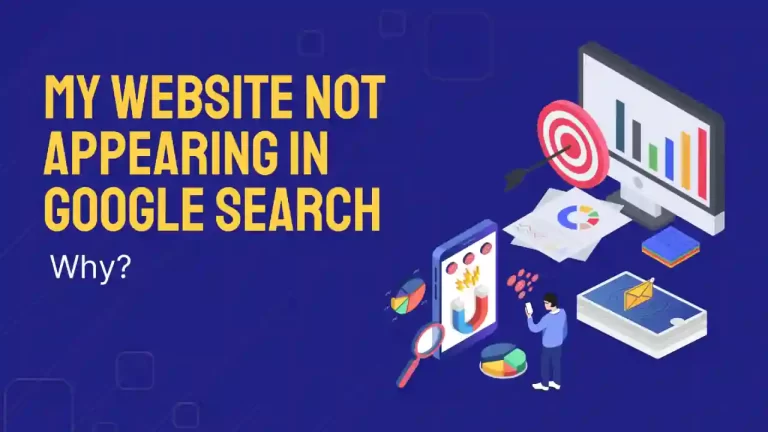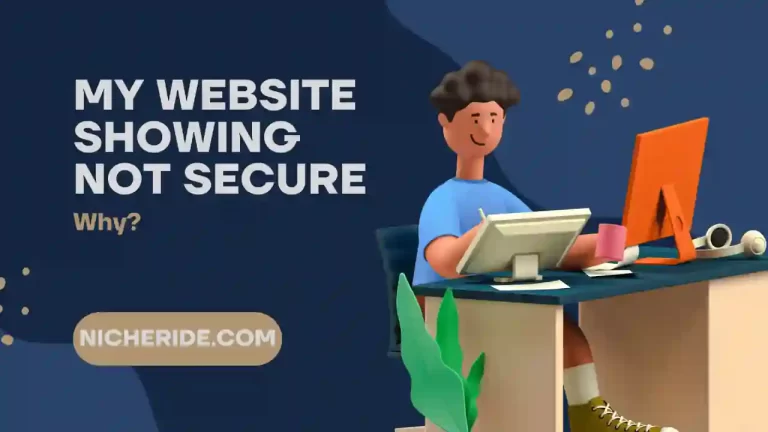There are a number of potential reasons why Google is not indexing your site. The most common reason is that your site is new and has not yet been discovered by the Google crawler. If you have recently launched your site, it can take some time for the crawler to find it and index it. Other potential reasons include:
– Your site is not well linked. If your site does not have many inbound links, it may be more difficult for the crawler to find and index it.
– Your site is not well optimized. If your site is not properly optimized for the Google search engine, it may be more difficult for the crawler to find and index it.
– You have blocked Google from crawling your site. If you have used a robots.txt file or meta tags to block Google from crawling your site, this could explain why your site is not being indexed.
If you are unsure why your site is not being indexed by Google, you can use the google webmaster Tools ‘Fetch as Google’ feature to submit your site for indexing. This will allow you to see if any errors are preventing your site from being indexed.
Google Indexing And Google Ranking
Google indexing is the process of adding web pages to the Google index. This is done automatically by the Google crawler, which visits sites and indexes their content. Indexing is important because it allows Google to include your pages in its search results.
Google ranking is the process of determining where your pages should appear in the search results. The ranking is based on several factors, including the quality and relevance of your content, as well as the number and quality of inbound links. Higher rankings will result in more traffic to your site.
Google indexing and ranking are important factors in getting your site seen by potential visitors. If you are having problems with either one, it is important to troubleshoot
Google Is Not Crawling Your Website
If Google is not crawling your website, it may be because you have blocked the Google crawler. You can check this by looking at your robots.txt file. This file is located in the root directory of your website and controls what parts of your site can be crawled by Google. If you see that the crawler has been blocked, you will need to remove this block to allow Google to index your site.
Another potential reason why Google is not crawling your site is that it is not well-linked. If your site does not have many inbound links, it may be more difficult for the crawler to find it. You can improve your site’s link popularity by submitting your site to directories and by getting other websites to link to you.
Google Is Not Indexing Your Website
If Google is not indexing your website, it may be because your site is new and has not yet been discovered by the Google crawler. If you have recently launched your site, it can take some time for the crawler to find it and index it. You can speed up this process by submitting your URL to Google using the ‘Fetch as Google’ feature in Webmaster Tools.
Another potential reason why Google is not indexing your site is that it is not well optimized. If your site is not properly optimized for the Google search engine, it may be more difficult for the crawler to find and index it. You can improve your site’s optimization by using keyword-rich titles and descriptions, as well as by ensuring that your site’s code is clean and well-structured.
If you are unsure why your site is not being indexed by Google, you can use the Google Webmaster Tools ‘Fetch as Google’ feature to submit your site for indexing. This will allow you to see if any errors are preventing your site from being indexed. You can also contact Google support for further assistance.
There are Crawling Errors on the Site
If there are crawling errors on your site, it means that the Google crawler is having difficulty accessing your site’s content. This can happen for several reasons, including:
- Your server is down or unresponsive.
- Your robots.txt file is blocking the crawler.
- You have duplicate content on your site.
- Your site’s code is messy and/or poorly structured.
If you see crawling errors in Webmaster Tools, you will need to fix them to allow Google to index your site properly. You can usually do this by correcting the issue that is causing the error.
For example, if your robots.txt file is blocking the crawler, you will need to remove the block. If your server is down, you will need to contact your hosting provider to have the issue resolved.
Your Blog Has A Duplicate Content
There are a few things to keep in mind when it comes to duplicate content:
1. Google is not a fan of duplicate content
2. Duplicate content can hurt your SEO
3. Duplicate content can cause problems for your website
4. Make sure you avoid duplicate content!
When it comes to Google and duplicate content, the search engine giant has said time and time again that they are not a fan of it. They have even gone as far as to say that duplicate content can hurt your SEO.
One of the main reasons why Google does not like duplicate content is because it can cause problems for your website.
If there is duplicated content on your site, it can be difficult for Google to figure out which version of the content is the original. This can lead to your site being penalized or even removed from Google’s search results entirely.
To avoid duplicate content, make sure that you are unique in your content. You can do this by writing original articles or blog posts, and by avoiding plagiarism.
If you do use someone else’s content, make sure to give them credit by linking back to their site. By following these simple tips, you can avoid the problems associated with duplicate content!
Content Is Not Interlinked
One common issue with websites is that their content is not interlinked. This can be a big problem, because it can make it difficult for Google to figure out what your website is about.
When your content is interlinked, it means that there are links between your pages that help Google understand the relationships between them. This can be anything from linking to related articles on your site to linking to other websites that are relevant to your topic.
If your content is not interlinked, it can be difficult for Google to understand how it all fits together. This can lead to your website being less visible in search results, and it can also make it more difficult for people to navigate your site.
To avoid this problem, make sure to interlink your content! You can do this by adding links to related articles and website in your text, and by adding links to other websites that are relevant to your topic.
Remember, quality content is key to a successful website!
How Do You Get People To Visit Your Website If it is New?
There are several ways to get people to visit your website.
Here are a few:
- Use social media to promote your website
- Write guest posts on other blogs and in forums
- Use search engine optimization (SEO) to make your site more visible in search results
- Run ads or pay-per-click (PPC) campaigns
- Get listed in online directories
- Include a link back to your site
- Make sure your website is listed in directories and search engines
- Use pay-per-click advertising to get people to your site
- Make sure your website is mobile-friendly
- Use email marketing to promote your website
- Use content marketing to attract visitors to your site
- Offer something for free on your website (e.g., an ebook, webinar, etc.)
All of these methods can be effective in driving traffic to your website. However, it’s important to keep in mind that not all traffic is created equal.
For example, getting 1000 visitors from a PPC campaign is not the same as getting 1000 visitors from a guest post on a popular blog.
The former will likely be much more expensive, while the latter will be free. Therefore, it’s important to choose the right method for promoting your website based on your budget and goals.
Conclusion
If your site has been up and running for a while but you’re not seeing any traffic from Google, there are a few things you can do to troubleshoot the issue.
First, check to make sure that your site is indexed by using the search bar on Google.com. If it’s not showing up in the results, there are a few potential reasons why.
The most common reason is that your site is new and has not yet been discovered by the Google crawler.
If you have recently launched your site, it can take some time for the crawler to find it and index it.
You can also use Google Search Console to submit your URL directly to the crawler and speed up the process.


